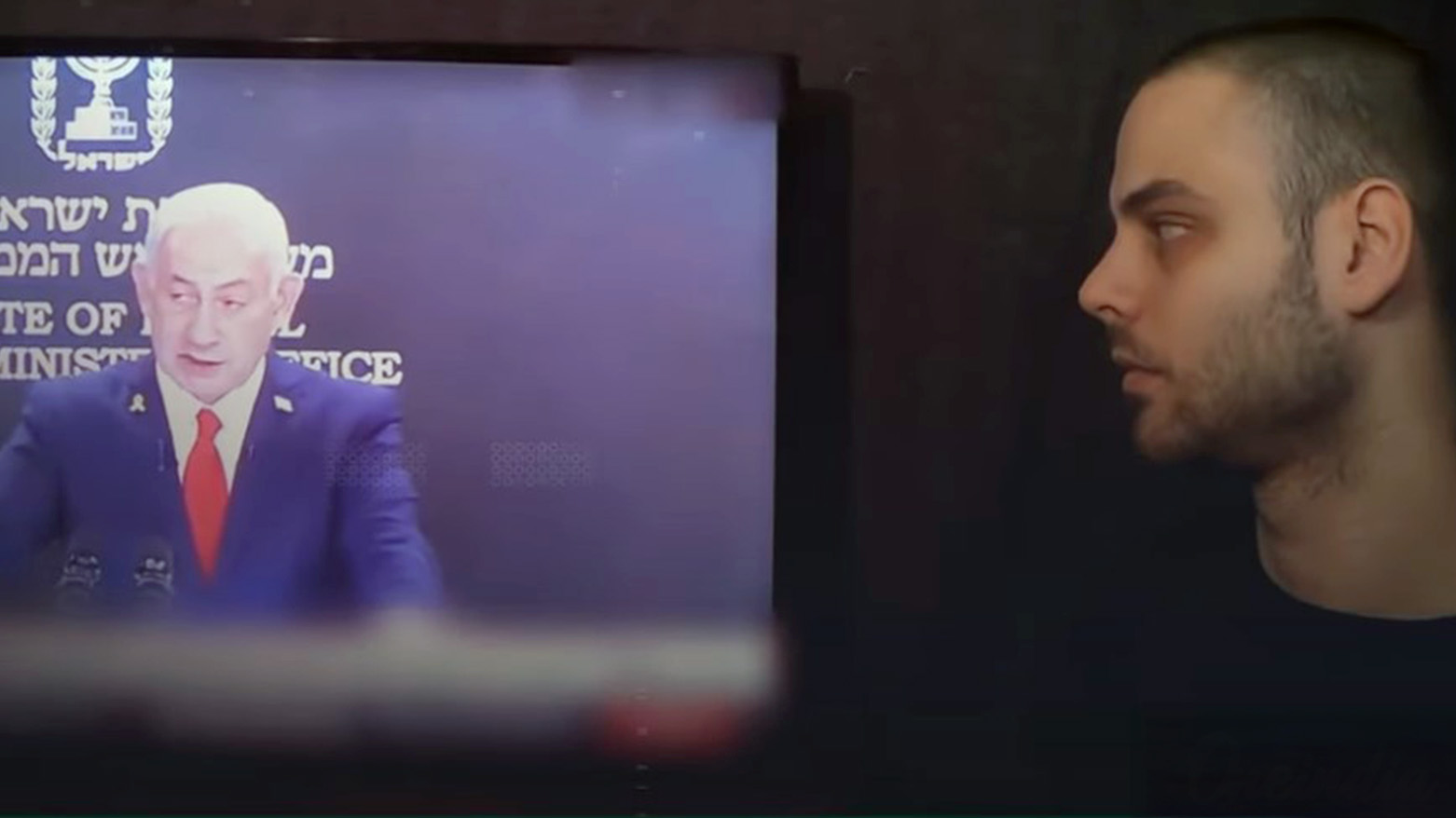Hamas Publishes New Hostage Video of Israeli-German Captive, Family Urges Swift Action
The footage underscores the plight of dozens of hostages still held in Gaza nearly a year after Hamas’s October 7, 2023, massacre in southern Israel.

ERBIL (Kurdistan24) — Hamas’s armed wing on Monday released a new video of Israeli-German hostage Alon Ohel, marking the second time this month the 24-year-old has been shown alive in captivity.
The footage underscores the plight of dozens of hostages still held in Gaza nearly a year after Hamas’s October 7, 2023, massacre in southern Israel.
The Israeli campaign group Hostages and Missing Families Forum, along with Ohel’s family, confirmed his identity and appealed to the media not to use the images or excerpts from the propaganda video.
Ohel, dressed in a black t-shirt, is seen addressing Prime Minister Benjamin Netanyahu and urging efforts to secure the release of captives.
A Hamas militant holding a rifle taps him on the shoulder during the clip, which also shows Ohel glancing at a television screen broadcasting Netanyahu’s image. AFP said it could not verify the timing of the recording.
“Our family is shaken and in pain following the release of Alon’s video by Hamas,” his parents, Idit and Kobi Ohel, said in a statement.
They noted that their son appeared thin, distressed, and suffering from impaired vision in his right eye, calling for immediate medical treatment by an eye specialist.
“On the eve of Rosh Hashanah, during these days of repentance, the fate of young Jewish lives — Israeli citizens — now rests in the hands of the prime minister and the cabinet,” the family added, urging leaders to prioritize bringing all hostages home.
Ohel had recently returned from Asia and was preparing to begin music studies when he attended the Supernova music festival near the Gaza border. Like many others, he was caught in the Hamas assault and captured while trying to flee along Route 232, the only road out of the site.
Earlier this month, Hamas released a video showing Ohel alongside another captive, Guy Gilboa-Dalal.
According to Israeli figures, 251 people were abducted during Hamas’s October 7 assault, which left 1,219 people dead, most of them civilians. The Israeli military believes at least 25 of the hostages are no longer alive.
The October 7 attack was the deadliest single day for Jews since the Holocaust and sparked Israel’s ongoing war against Hamas in Gaza. Israeli leaders have consistently framed the offensive as both a mission to dismantle Hamas’s terror infrastructure and a moral duty to recover the captives.
The Hamas-run health ministry in Gaza claims more than 65,000 Palestinians have been killed since the war began, though Israel and independent analysts caution that the figures — while cited by the United Nations — do not distinguish between civilians and Hamas fighters.
The hostage crisis unfolds amid broader regional tensions and international diplomacy over the Israeli-Palestinian conflict. While France and several other Western countries have recognized Palestinian statehood, Israel maintains that unilateral moves do little to address the security threats posed by Hamas.
Prime Minister Netanyahu and Israeli officials argue that ongoing negotiations and military operations are necessary to dismantle the militant infrastructure in Gaza, prevent further attacks, and secure the release of hostages like Ohel.
Despite global recognition efforts, Israel insists that Hamas bears full responsibility for the captives’ welfare, having deliberately embedded fighters and weapons in civilian areas, which continues to complicate humanitarian conditions in Gaza.
For Israel, Ohel’s case is emblematic of the broader national trauma. The videos released by Hamas are widely seen in Israel as psychological warfare aimed at sowing division and pressuring the government.
Israeli officials insist that only continued military and diplomatic pressure on Hamas can secure the captives’ safe return.
As Ohel’s family put it in their appeal: “Do not break the heart of the people of Israel. The most important national message right now is bringing Alon and all the hostages home to their families.”